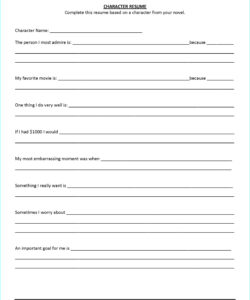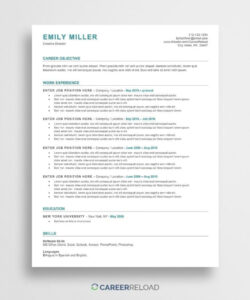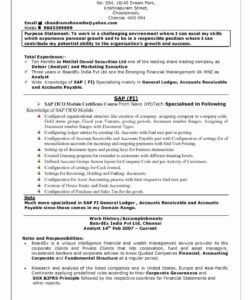How to Read a Resume
When it comes to hiring, resumes are the first point of contact between job seekers and employers. A well-written resume can help job seekers stand out from the crowd and land their dream job. However, reading resumes can be a daunting task for employers, especially when they have to sift through hundreds of resumes for a single position. In this article, we will discuss how to read a resume effectively and efficiently.
Before we dive into the details, let’s first understand what a resume is. A resume is a document that summarizes a job seeker’s work experience, education, skills, and achievements. It is usually the first document that a job seeker submits to a potential employer. A well-written resume can help job seekers get noticed by employers and increase their chances of getting hired.
How to Read a Resume Effectively
Reading resumes can be a time-consuming process, especially when you have to go through hundreds of resumes for a single position. Here are some tips to help you read resumes effectively:
1. Skim the Resume First
Before you start reading a resume in detail, it’s a good idea to skim through it first. This will give you an idea of the candidate’s work experience, education, and skills. Skimming the resume first will also help you identify any red flags or inconsistencies in the candidate’s work history.
2. Look for Relevant Information
When reading a resume, it’s important to look for relevant information that is related to the job position. For example, if you’re hiring for a software developer position, you should look for information related to the candidate’s programming skills, experience with different programming languages, and experience with software development tools.
3. Pay Attention to Formatting
The formatting of a resume can tell you a lot about the candidate’s attention to detail and organizational skills. A well-formatted resume with clear headings and bullet points can indicate that the candidate is organized and detail-oriented.
4. Look for Accomplishments
When reading a resume, it’s important to look for the candidate’s accomplishments rather than just their job duties. Accomplishments can include things like awards, promotions, and successful projects. Looking for accomplishments can help you identify candidates who are high achievers and have a track record of success.
How to Read a Resume Efficiently
Reading resumes can be a time-consuming process, but there are ways to make it more efficient. Here are some tips to help you read resumes efficiently:
1. Use Keywords
Using keywords can help you quickly identify resumes that are relevant to the job position. For example, if you’re hiring for a software developer position, you can use keywords like “programming skills,” “software development,” and “programming languages” to quickly identify resumes that are relevant to the position.
2. Use a Checklist
Using a checklist can help you stay organized and focused when reading resumes. You can create a checklist of the skills and qualifications that are required for the job position and use it to evaluate each resume.
3. Use Resume Screening Software
Resume screening software can help you quickly identify resumes that are relevant to the job position. The software uses algorithms to scan resumes for keywords and other relevant information. This can save you a lot of time and effort when reading resumes.
Conclusion
Reading resumes can be a time-consuming process, but it’s an important part of the hiring process. By following the tips outlined in this article, you can read resumes effectively and efficiently. Remember to look for relevant information, pay attention to formatting, and look for accomplishments. Using keywords, a checklist, and resume screening software can also help you read resumes more efficiently.
FAQ
Q: What should I look for when reading a resume?
A: When reading a resume, you should look for relevant information that is related to the job position. This includes the candidate’s work experience, education, skills, and achievements.
Q: How can I read resumes more efficiently?
A: You can read resumes more efficiently by using keywords, a checklist, and resume screening software. Using these tools can help you quickly identify resumes that are relevant to the job position.
Q: What is the best way to evaluate resumes?
A: The best way to evaluate resumes is to look for relevant information, pay attention to formatting, and look for accomplishments. Using keywords, a checklist, and resume screening software can also help you evaluate resumes more efficiently.


